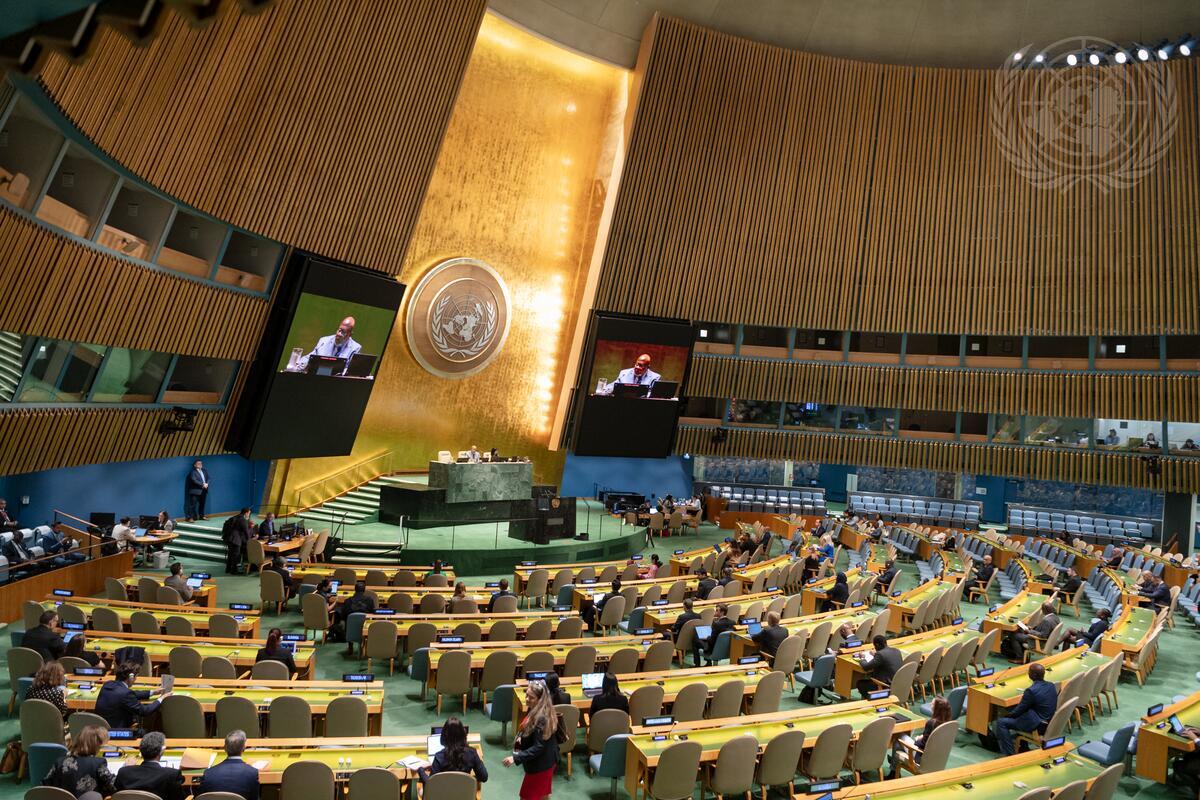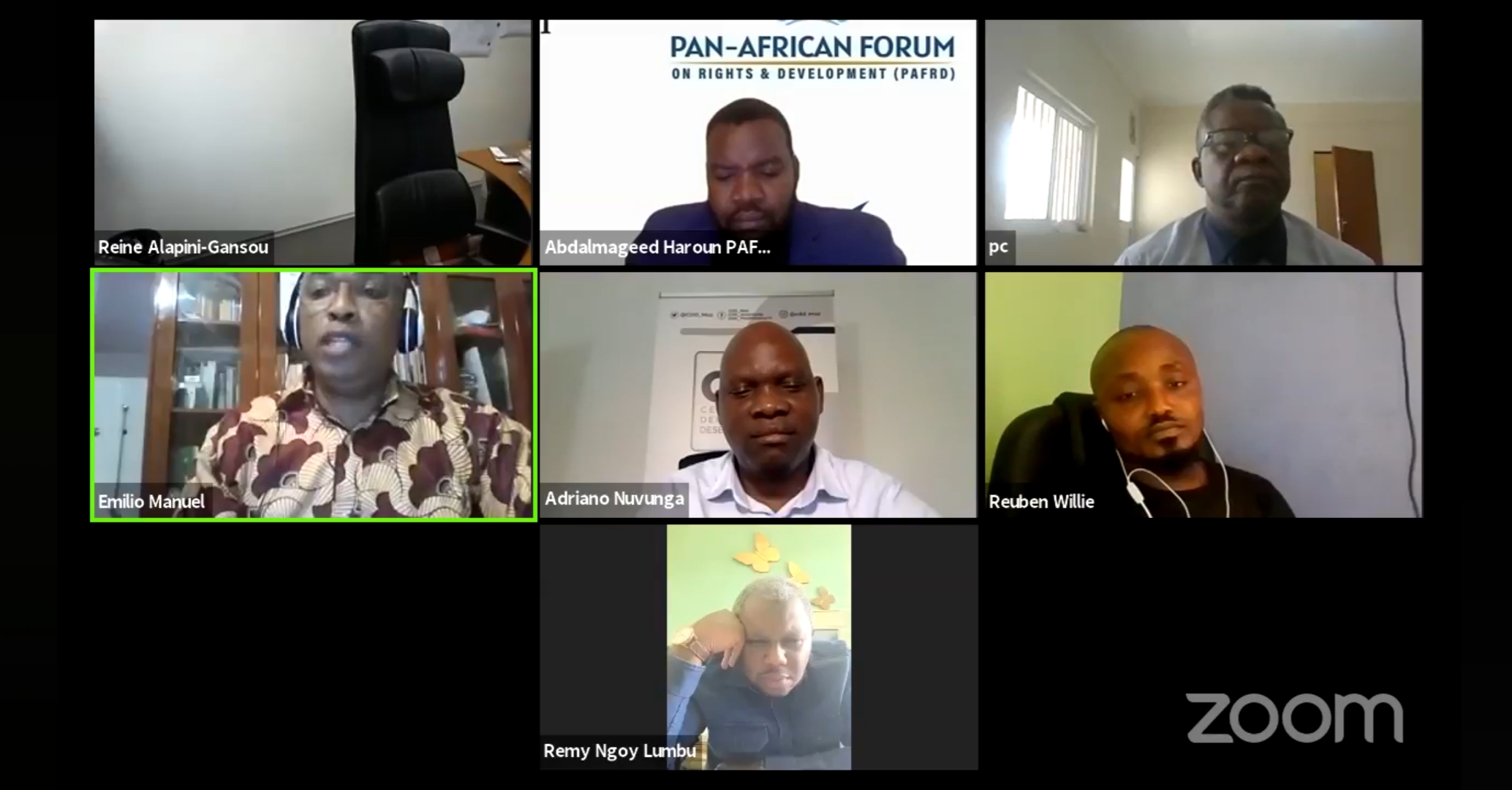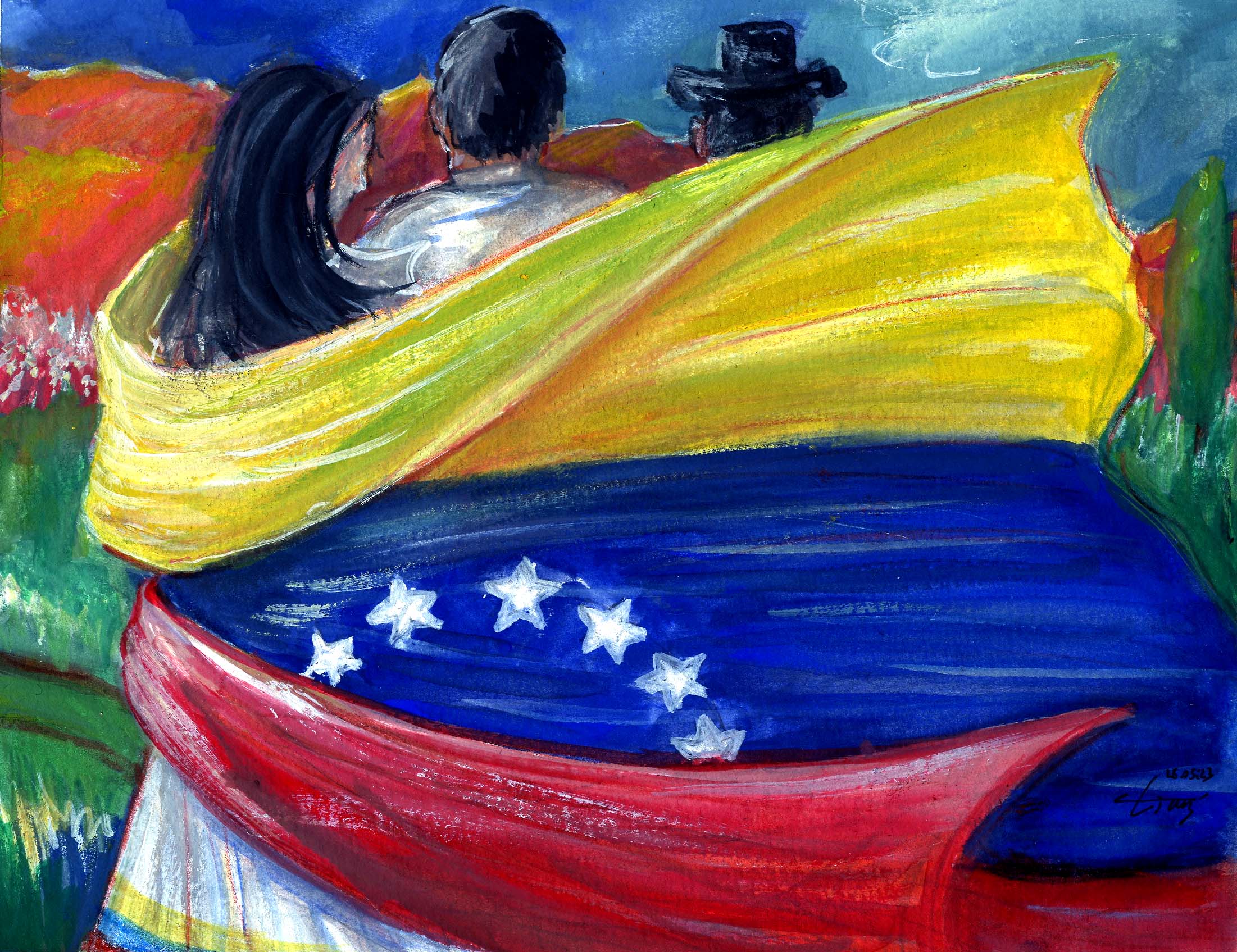For the last session of the year, entitled 40 Years of the African Charter on Human and People’s Rights – The Way Forward for the Africa We Want, the NGO Forum looked at how far the protection of human rights has evolved on the continent through the use and implementation of the African Charter since its adoption in 1981.
Human rights situation in Africa
In Central Africa, Grace Endalle from the Central African Network on Human Rights Defenders, reported on the dangerous shrinking of civic space in Congo, the Democratic Republic of Congo and Cameroon, where there are numerous arbitrary arrests, excessive police violence and inhumane treatments. It was recommended that these States take a more solid step towards the protection of democracy and governance by aligning themselves with the African Charter.
The same recommendation was addressed to East African States where the various conflicts in the Horn of Africa and elsewhere in the region make access to civic space very perilous if not totally closed. In addition, it was also recommended that the widespread practice of harassing human rights defenders should be stopped and their protection ensured.
In North Africa, Naji Moulay Lahsen, from the Independent Human Rights Commission of North Africa, reported on the fragile condition of the rights to freedom of association and assembly and the impunity that remains prominent in the region. In Algeria, Libya and Morocco, human rights defenders face reprisals for speaking out about human rights violations. In Tunisia, LGBTI activists are arbitrarily arrested and imprisoned. It was recommended that countries in the region uphold their regional obligation and ensure the right to association and assembly are protected without conditions.
In West Africa, the coups in Mali and in Guinea have contributed to creating a hostile climate towards civil society that is not favorable to the defense of human rights. In contrast, and as a result of the pandemic, Benin has released 411 prisoners and modified its legal framework in favour of people with disabilities, though progress on human rights remains limited in the country. Benin’s human rights situation will be reviewed during the upcoming 69th ACHPR session.
In Southern Africa, Eswatini is plagued by several human rights violations. The government has granted itself full powers, which now overrides the judiciary and the legislature. In Namibia, although efforts to cooperate with the ACHPR have been commended, concerns remain about the role of the Ombudsman in the legislative process and the persistence of anti-LGBT laws. Both countries, as well as the Seychelles, will also be subject to review of their national human rights situation during the 69th session of the ACHPR.
40 years of the African Charter: contrast with the reality of the continent and the Covid-19 pandemic
The African Charter was unanimously praised by panelists for its contributions and the progress it has brought to the continent in the promotion and protection of human rights. Notably, through the establishment of the African Commission on Human and Peoples’ Rights, the African Court on Human Rights and the creation of numerous other protocols. However, in contrast to the progress made so far, the situations of violence and hostility towards human rights in a majority of countries on the continent were also recalled and presented as a continuing challenge despite the advent of the Charter. This last point is partly explained by the fact that states are the only ones deciding how they implement the Charter. In addition, political instability, lack of democracy and worsening corruption, the resurgence of coups d’état, socio-economic challenges and the new challenges brought about by the environmental crisis are all factors that slow down the full realisation of the Charter’s provisions.
The continuing effects of the Covid-19 pandemic on civil society, already discussed at the April 2021 session, are still topical and the forum reiterates the severe impact of the anti-propagation measures on the already complicated access to civic space and the resulting human rights violations. Indeed, many of these measures are deemed disproportionate, going beyond their initial objectives, and are suspected of being used by some States as a tool to monitor their populations. The forum looked in particular at the social impact of these measures on populations that depend on the informal economy such as the LGBTI community, domestic workers, migrants, refugees and internally displaced persons. Finally, the impact of the pandemic on the rights of young people was also addressed through the cut-off of access to education and the internet, which more than 25 African countries have implemented, and which has drastically hindered the participation of young people in society. Civil society organisations argued that compliance with the Charter is, in this context, more important than ever to avoid violations. To this end, a resolution that aligns with the African Charter on Pandemic Recovery was passed and will be presented at the 69th African Commission. It is intended to set a precedent to prevent abusive and repressive measures being put in place in the future, or becoming so in the future.
Access to vaccine remains a concern
Equitable access to vaccination remains a challenge on the continent: where some countries such as Seychelles and Morocco have vaccinated more than half of their population, others such as South Sudan, Cameroon and Congo have only administered vaccines to 1% of their population. The NGO forum cited several causes for this: the management of vaccine distribution, which is heavily influenced by political and diplomatic interests; national and regional security challenges which slow down or completely prevent access to immunisation; the lack of funding and campaigning for immunisation; and the lack of compliance by vaccine companies with the reality of the continent.
To address these challenges, of the five thematic resolutions that were voted on at the end of the session, one specifically addresses the urgent need for more equitable distribution of Covid-19 vaccines in Africa and another tackles the post-pandemic recovery, highlighting vaccination as the tool that will enable a return to normalcy.
Country resolutions :
Resolution on the situation of human rights in Eswatini
Resolution on the situation of human rights in Sudan
Resolution on the situation of human rights in Nigeria
Thematic resolutions :
Resolution on the protection of the rights of LBGTI persons
Resolution on the urgent need for equitable access to Covid-19 vaccination in Africa.
Resolution on migrant and domestic workers in Africa
Resolution on the protection of civic space and human rights for the next 40 years
Resolution on Recovery from Covid-19
Recommendation :
Recommendation on the situation of refugees, asylum seekers and stateless persons
You can access here the recording to the sessions




